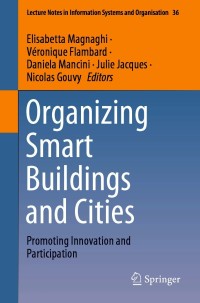Mr. I.M. Leaving formally separated from his wife early in 2013. Custody of his four children, aged 18, 13, 12, and 11 at the end of 2013, was given to him as part of an agreement worked out with his wife in family court. To make a fresh start, effective March 31, 2013 he resigned his position in Toronto, where he had been employed by the same employer since November 1982, and took a position in Kanata near Ottawa. In previous years, he had always prepared his own tax return, but because of the extraordinary events of 2013, he was having some difficulty with the calculation of his income and taxes payable. He has come to you for help with these calculations, having already correctly calculated his income under Subdivision a, b, and c of Division B as follows:



Subdivision a Salary (from both employers in 2014) $75,000 Taxable group term life insurance premium paid by both employers 550 $75,550 Less: RPP - (both employers) (5.100 $70,450 Subdivision b Business income: Share of partnership income (drawings of $4,000) $ 8,500 Property income: Net rental loss from apartment building S(4,500) Grossed-up dividends from taxable Canadian public corporations 1,250 Canada Savings Bond interest 600 (2,650) Less: interest on loan to buy shares 250 (2.900 $ 5,600 Subdivision c Taxable capital gains net of allowable capital losses Sale of shares $ 6,000 Sale of cottage owned jointly with wife for past 5 years (after principal residence exemption) 5,000 Sale of painting 500 11.500 Total $87.550 Additional Information: (1) He had the following additional receipts during 2014: A lump-sum payment out of the RPP of his former employer who had made vested contributions for the last 10 years (including 2014) transferred directly to his RRSP $20,000 A retiring allowance for long service from his previous employer 60.000 $80.000 Problem 10-9 (Cont.) (2) He made the following selected payments in respect of 2014: RRSP contribution for 2014 (Assume earned income in 2013 was the same as for 2014 and his pension adjustment for 2013 was $5,000) $70,000 Legal fees: - representation in family court $ 4,500 - appealing a tax assessment, which he lost 1.250 5,750 Charitable donations consistent with prior years) $ 1,250 Maintenance payments for wife by virtue of agreement made pursuant to a court order. Total of monthly payments for her maintenance $ 8,000 Total of monthly payments directly to owner of her apartment 5.000 13.000 $90,000 (3) Mr. Leaving had net capital losses of $11,466 in 1999, which he has not used. (4) Mr. Leaving has never had a capital gain or loss before, nor has he ever claimed any of his capital gains exemption. (5) Mr. Leaving had the following amounts withheld from his employment wages: Canada pension plan premiums $2,426 Employment insurance premiums $ 914 (6) Mr. Leaving's oldest child, Scott, attends Queen's University and paid $4,000 in tuition fees for eight months of full-time attendance during 2014. Scott earned gross employment income of $2,500 during the summer. No deductions were taken from his pay. (7) Mr. Leaving's other children do not have any income. Required: Complete the following calculations. Show all calculations whether or not they are necessary to the final answer (1) Calculate the Subdivision e deductions for Mr. Leaving. (2) Calculate his taxable income and show all deductions to arrive at his taxable income. (3) Calculate his federal taxes payable. Subdivision a Salary (from both employers in 2014) $75,000 Taxable group term life insurance premium paid by both employers 550 $75,550 Less: RPP - (both employers) (5.100 $70,450 Subdivision b Business income: Share of partnership income (drawings of $4,000) $ 8,500 Property income: Net rental loss from apartment building S(4,500) Grossed-up dividends from taxable Canadian public corporations 1,250 Canada Savings Bond interest 600 (2,650) Less: interest on loan to buy shares 250 (2.900 $ 5,600 Subdivision c Taxable capital gains net of allowable capital losses Sale of shares $ 6,000 Sale of cottage owned jointly with wife for past 5 years (after principal residence exemption) 5,000 Sale of painting 500 11.500 Total $87.550 Additional Information: (1) He had the following additional receipts during 2014: A lump-sum payment out of the RPP of his former employer who had made vested contributions for the last 10 years (including 2014) transferred directly to his RRSP $20,000 A retiring allowance for long service from his previous employer 60.000 $80.000 Problem 10-9 (Cont.) (2) He made the following selected payments in respect of 2014: RRSP contribution for 2014 (Assume earned income in 2013 was the same as for 2014 and his pension adjustment for 2013 was $5,000) $70,000 Legal fees: - representation in family court $ 4,500 - appealing a tax assessment, which he lost 1.250 5,750 Charitable donations consistent with prior years) $ 1,250 Maintenance payments for wife by virtue of agreement made pursuant to a court order. Total of monthly payments for her maintenance $ 8,000 Total of monthly payments directly to owner of her apartment 5.000 13.000 $90,000 (3) Mr. Leaving had net capital losses of $11,466 in 1999, which he has not used. (4) Mr. Leaving has never had a capital gain or loss before, nor has he ever claimed any of his capital gains exemption. (5) Mr. Leaving had the following amounts withheld from his employment wages: Canada pension plan premiums $2,426 Employment insurance premiums $ 914 (6) Mr. Leaving's oldest child, Scott, attends Queen's University and paid $4,000 in tuition fees for eight months of full-time attendance during 2014. Scott earned gross employment income of $2,500 during the summer. No deductions were taken from his pay. (7) Mr. Leaving's other children do not have any income. Required: Complete the following calculations. Show all calculations whether or not they are necessary to the final answer (1) Calculate the Subdivision e deductions for Mr. Leaving. (2) Calculate his taxable income and show all deductions to arrive at his taxable income. (3) Calculate his federal taxes payable









